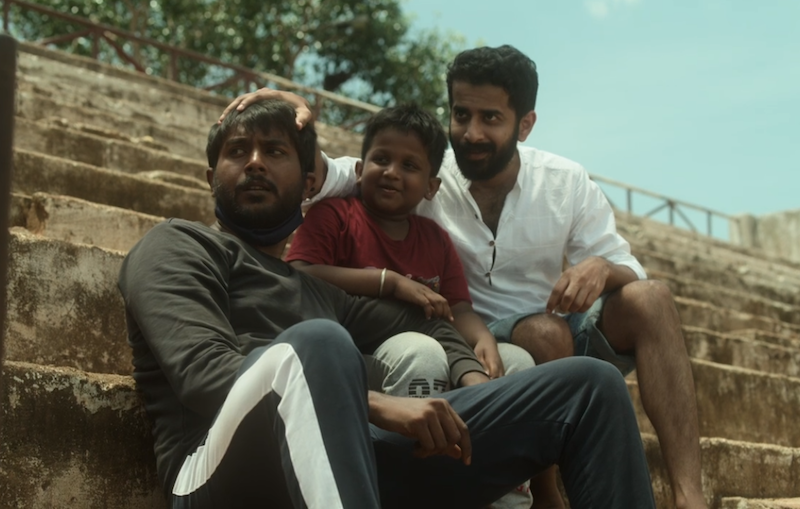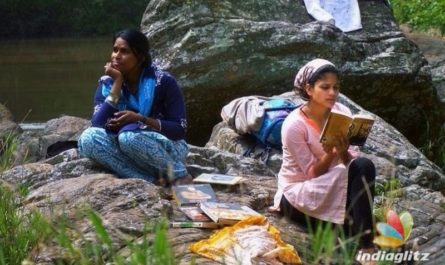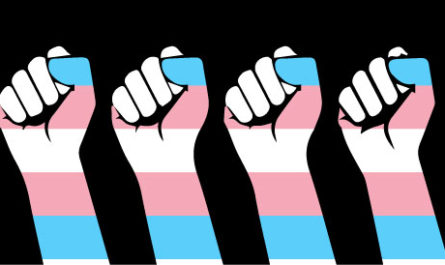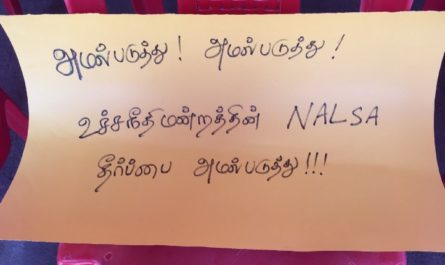
SPOILERS
As I finished watching the fourth episode, The Mask, of Puttham Pudhu Kaalai Vidiyadha on Amazon Prime I thought I have to watch it again to process the film. For one it was past midnight and the other reason being the film felt right for having a gay lead in it, but missed to hit the right chord for me initially.
The short film is better than the ones in Paava Kadhaikal. No queer person dies in this film to save a cis-het person and we are not baited to believe that this is about gay men. In fact, Arjun, played by Sananth, says “I am gay” more than once. And at one-point Arjun literally takes off his mask, which I found funny.
Not killing the queer characters might be seen as a bare minimum. But the way the gay characters were visualised in the film was sensible and complete. The film’s writer S Guhapriya and the director Surya Krishna have done a good job in telling the story they have taken as sensibly as one could. But not without shortcomings. The movie also comes across as an over the top “message” film. But there are many interesting aspects that I noticed when I watched the film again.
Both the gay men Arjun and Paul (Arun Kurian) are assertive in their own way. Paul a little lot more assertive, queer and tender than Arjun. That made me long for more screen time for Paul to know him better. On the other hand, there is nothing queer about Arjun on the surface. His sexuality isn’t his primary issue. Not because he is ok with it, but rather he thinks, like many, he can put it behind and lead a ‘normal’ life. Like how one avoid potholes on the road – a dialogue in the film he uses as a reference when arguing with his boyfriend on why he doesn’t want to come out to his father. The film also starts with Arjun’s voiceover where he mentions that his only problems in life were the city’s heat, traffic and tax; that is until the pandemic hit and showed him the reality he denied to see.
Interestingly the film is not about Arjun and Paul. But rather it is about Arjun and his long-lost school friend Velu (Dhilip) – a cis-heterosexual married man with a child. On the other hand, Arjun is ‘single’, a bachelor in the eyes of his family and the society. The film cleverly uses the references of lockdown, mask and closet to weave the narrative to pass down the “message”. The film raises some questions about how fair it is to put Arjun and Velu on the same pedestal. A heterosexual man with a loving family, a law breaker with power and money on one side, and a gay man who works in IT and who will for sure be disowned by his family if they knew about his sexual orientation. The film also touches upon their past, where their standing in their football team was reversed. Velu was the wimp and Arjun an influential voice in the team, who even managed to get his team contribute money to get Velu a new shoe. Velu sees Arjun as the only friend from the past citing this incident. Arjun doesn’t have anything to remember about Velu apart from his nickname “Ottu Pakoda”. We are not really given Arjun’s point of view of his childhood growing up gay. But from the overall story it is safe to assume that he hasn’t come to a point until then where he had to confront his sexuality publicly.
The film packs a lot in the 30 minutes; either by dialogues or through visuals. And this makes the film uneven. The fourth-wall breaking moments did not work for the film. It doesn’t add much to the story telling. As mentioned, the film is packed and busy and Arjun talking to the audience felt redundant. But, this is the first Tamil film where the hero who is also a gay man, talks directly to the audience. Especially where he talks about his partner Paul to the audience; an audience who are largely conditioned to laugh at homosexual desires and love.
We are introduced to Arjun’s family. A family that we have seen in many Tamil films and also probably in real life too. Not so good relationship between the father and son, and a mother who is eager to learn more, and supportive about her son’s (heterosexual) love. The son, assumed to be in his 30s is seen as irresponsible by his family and his friend Velu, which also becomes one of the pivotal moments for Arjun to come out to Velu. Arjun coming out to Velu in angst is also the moment Velu becomes vulnerable. Until then Velu boasts about his family, money and his power. Velu has his own mask of being a gangster and ponders how to tell his son about his profession on the other hand Arjun struggles to take off his ‘mask’ to his family.
There is a more important moment that hits Arjun hard. Velu, in spite of his power and money, is unable to save his wife from Covid. For me, it is that moment when Arjun realises the fragility of life and the reality of his relationship with Paul. For me personally, as a gay man who lives with his partner, that scene felt honest. And probably made me forgive the comparison made between Velu and Arjun. Maybe that was the reality Arjun failed to see in his ‘normal’ life which he was forced to learn about through Velu. It was also a scene that hit close to home for me. During the second wave when I contracted Covid-19 the first fear came to my mind was “What if something happens to me, and what happens to the life and home we built together which has no legal or social recognition?” I still try to process the moment I messaged a friend asking if they could help out my partner deal with the biological family if something happens to me. And I put down a list of instructions I thought will be helpful for my partner dealing with the law and the family.
The ensuing coming out scene at Arjun’s house is partly a montage scene. We do not get to hear how Arjun expresses himself to his parents about his love for Paul. The visuals were loaded. There was a shot when Arjun comes out to his parents where the camera focuses him being behind an open bookcase and he appears to come out of the closet literally. The scene where his mother shuts the door on his face while Arjun standing outside the house was also powerful. I also saw the scene as Arjun being ‘out’ and his parents still being in the closet.
The few scenes where Arjun and Paul are together had real good chemistry. When the story lacks any romantic or intimate scenes it was good to see how carefully the few scenes between Arjun and Paul were constructed. Especially the scene when they both go look for a house, Paul casually holds Arjun’s arm, and Arjun removes his hand to avoid any physical contact. An important visual context that establishes early in the film the comfort level of both the men being out in the public.
The film also focuses a lot on coming out. The climax has Velu in a playground, which is the first scene in the film for him to be ‘out’ in the open. And the next shot shows Arjun’s mother come out of the car. I am not sure if these were intentional metaphors. But for a film that talks a lot about mask, closet and coming out these shots seemed to be made well.
The film doesn’t exploit the audience’s emotions to feel bad for the gay men to like them or to remember the film. There is also no stereotyping or caricature done to make either of them appear gay. The film has appreciable representation and I can notice the efforts put to ‘normalise’ the story and the gay men in it. The Mask might fail to impress many but this film for sure makes its way into the miniscule Tamil films with positive queer representation.



